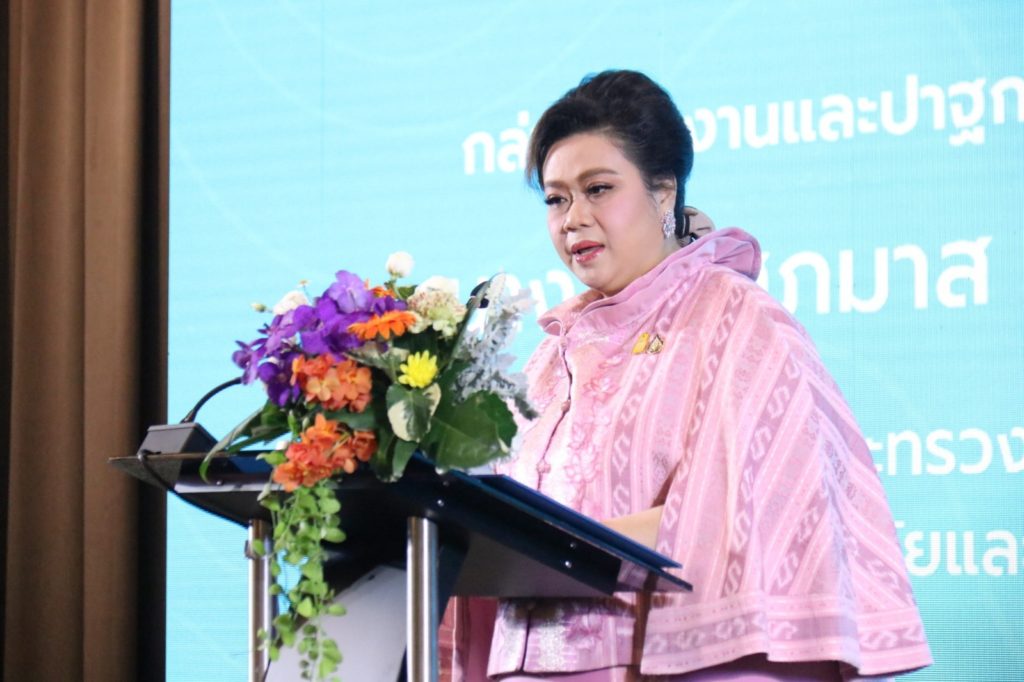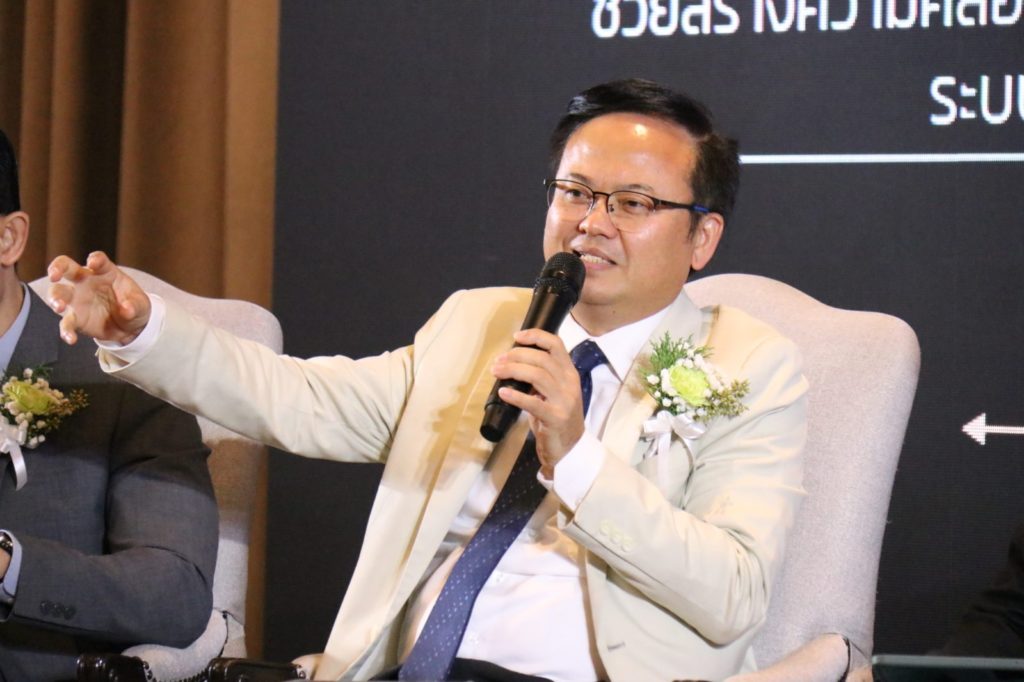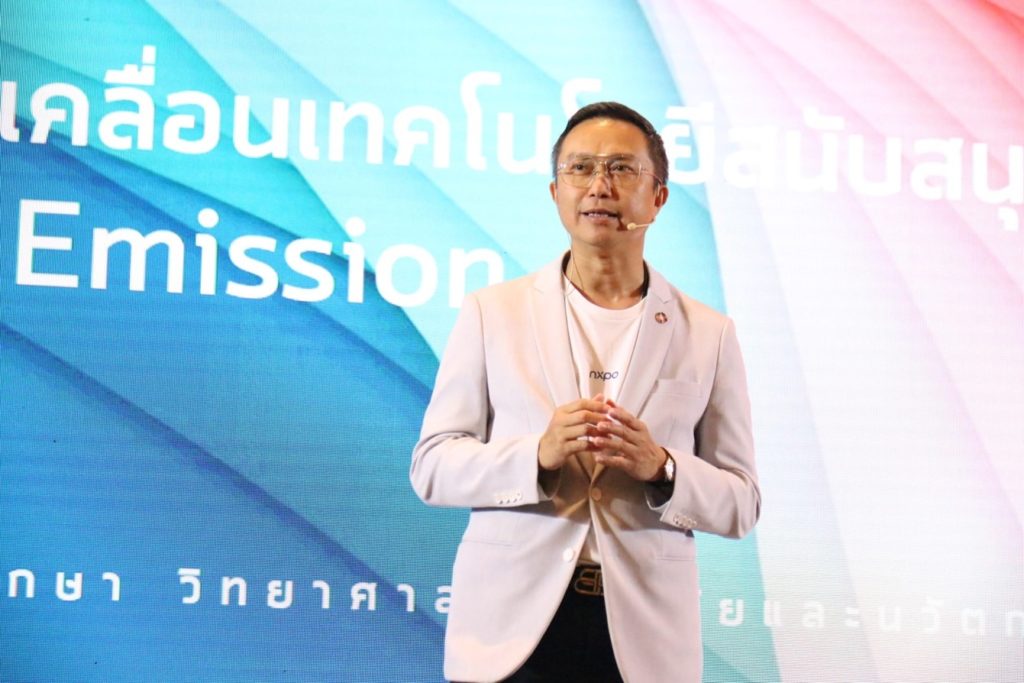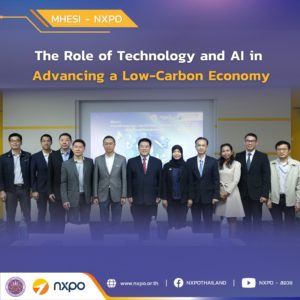
On 28 March 2024, Ms. Supamas Isarabhakdi, Minister of Higher Education, Science, Research and Innovation (MHESI), presided over the launch of the “Net Zero Campus”, a collaborative campaign organized by NXPO, Thailand Science Research and Innovation (TSRI), the Council of University Presidents of Thailand (CUPT), and the Department of Climate Change and Environment (DCCE) under the Ministry of Natural Resources and Environment. The celebration was attended by over 200 participants from universities across Thailand.

Minister Supamas highlighted the significance of this initiative, which involves 170 universities nationwide. It reflects the collective commitment of Thai universities towards achieving carbon neutrality and net zero emissions goals. This campaign is among several initiatives introduced by MHESI to support the net zero objective, including “MHESI for EV” which aims to transform 30% of vehicles used in universities and agencies under MHESI into EVs by 2030, totaling approximately 5,000 vehicles, contributing to an annual reduction of 500,000 tons of GHG emissions.
Furthermore, Minister Supamas emphasized the power of universities in advancing national agendas, as demonstrated by the successful higher educational reforms announced at the Future Thailand event in January 2024. This new initiative reinforces the capacity of universities to pursue the net zero emissions goal in partnership with NXPO, TSRI, and DCCE.
“MHESI possesses the potential and resources to address the net zero emissions, which have implications for the economy, society and environment,” said Minister Supamas. “This launch event signifies the commitment of Thai universities to emission reduction, particularly in energy and waste management. In addition, universities will support communities and society in achieving net zero emissions through research and the implementation of technology and innovation. The initiative can be extended to encompass education, research, and research fund allocation.”

CUPT Chairman Professor Dr. Pongruk Sribanditmongkol, M.D., emphasized that this endeavor aims to help Thailand achieve its carbon neutrality and net zero emissions goals by 2050 and 2065, respectively. He highlighted the strengths each partner brings to the collaboration, with NXPO facilitating national policy deployment and technology development as the national designated entity (NDE) of UNFCCC technology mechanism, TSRI allocating budgets for key projects, and DCCE acting as a central body for national climate change efforts. The four partners will sign an MOU in May to formalize their collaboration.
CUPT will collaborate with its 36 member universities, 49 universities in the Sustainable University Network of Thailand (SUN Thailand), and 170 universities within the Rajamangala University of Technology system, the Rajabhat University system and the Association of Private Higher Education Institutions of Thailand (APHEIT) to align their research with MHESI’s policies, ensuring the reduction of GHG emissions and the facilitation of net zero emissions in communities.

In his presentation, NXPO President Dr. Kitipong Promwong highlighted NXPO’s efforts to reduce GHG emissions by leveraging higher education, research, and innovation and the role of DCCE in setting national zero emissions reduction goals. It would be impossible for NXPO and DCCE to reach these goals without including critical partners like Thai universities and TSRI to expand the effort and to include communities. In addition to existing technology and infrastructure, Dr. Kitipong encouraged universities, research institutes and industries to explore the transfer and localization of emerging technologies from overseas, including modular nuclear reactors (SMR and MMR) for electricity generation, to reach net zero goals.

During his presentation, NXPO Vice President Dr. Surachai Sathitkunarat discussed the role of higher education, science, research and innovation in driving climate technology to reach net zero emission target.
The event also featured a session where representatives from SUN Thailand, CUPT, the Rajamangala University of Technology system, the Rajabhat University system, and APHEIT, shared experiences and ideas pertaining to climate actions with participants.






